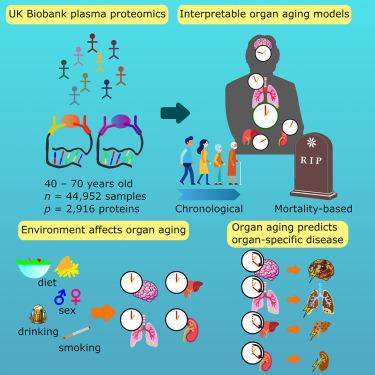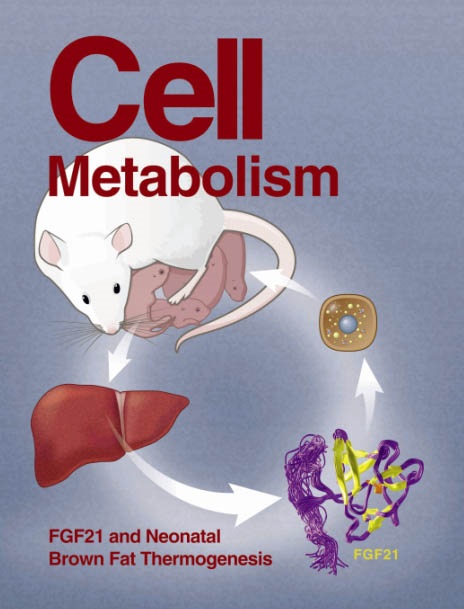Plasma protein-based organ-specific aging and mortality models unveil diseases as accelerated aging of organismal systems
IF 27.7
1区 生物学
Q1 CELL BIOLOGY
引用次数: 0
Abstract
Aging is a complex process manifesting at molecular, cellular, organ, and organismal levels. It leads to functional decline, disease, and ultimately death, but the relationship between these fundamental biomedical features remains elusive. By applying elastic net regularization to plasma proteome data of over 50,000 human subjects in the UK Biobank and other cohorts, we report interpretable organ-specific and conventional aging models trained on chronological age, mortality, and longitudinal proteome data. These models predict organ/system-specific disease and indicate that men age faster than women in most organs. Accelerated organ aging leads to diseases in these organs, and specific diets, lifestyles, professions, and medications influence organ aging rates. We then identify proteins driving these associations with organ-specific aging. Our analyses reveal that age-related chronic diseases epitomize accelerated organ- and system-specific aging, modifiable through environmental factors, advocating for both universal whole-organism and personalized organ/system-specific anti-aging interventions.

基于血浆蛋白的器官特异性衰老和死亡模型揭示了疾病是机体系统加速衰老的表现
衰老是一个复杂的过程,表现在分子、细胞、器官和机体层面。它导致功能衰退、疾病和最终死亡,但这些基本生物医学特征之间的关系仍然难以捉摸。通过对英国生物库和其他队列中超过 50,000 名人类受试者的血浆蛋白质组数据应用弹性网正则化,我们报告了根据年代年龄、死亡率和纵向蛋白质组数据训练的可解释器官特异性和常规衰老模型。这些模型可预测器官/系统特异性疾病,并表明在大多数器官中,男性比女性衰老得更快。器官衰老的加速会导致这些器官的疾病,而特定的饮食、生活方式、职业和药物会影响器官衰老的速度。然后,我们确定了这些与器官特异性衰老相关的蛋白质。我们的分析表明,与年龄相关的慢性疾病是器官和系统特异性衰老加速的缩影,可通过环境因素改变,这就需要采取普遍的全器官和个性化的器官/系统特异性抗衰老干预措施。
本文章由计算机程序翻译,如有差异,请以英文原文为准。
求助全文
约1分钟内获得全文
求助全文
来源期刊

Cell metabolism
生物-内分泌学与代谢
CiteScore
48.60
自引率
1.40%
发文量
173
审稿时长
2.5 months
期刊介绍:
Cell Metabolism is a top research journal established in 2005 that focuses on publishing original and impactful papers in the field of metabolic research.It covers a wide range of topics including diabetes, obesity, cardiovascular biology, aging and stress responses, circadian biology, and many others.
Cell Metabolism aims to contribute to the advancement of metabolic research by providing a platform for the publication and dissemination of high-quality research and thought-provoking articles.
 求助内容:
求助内容: 应助结果提醒方式:
应助结果提醒方式:


